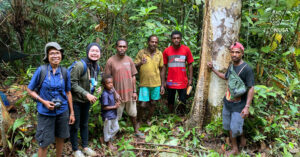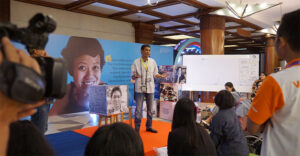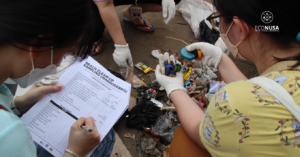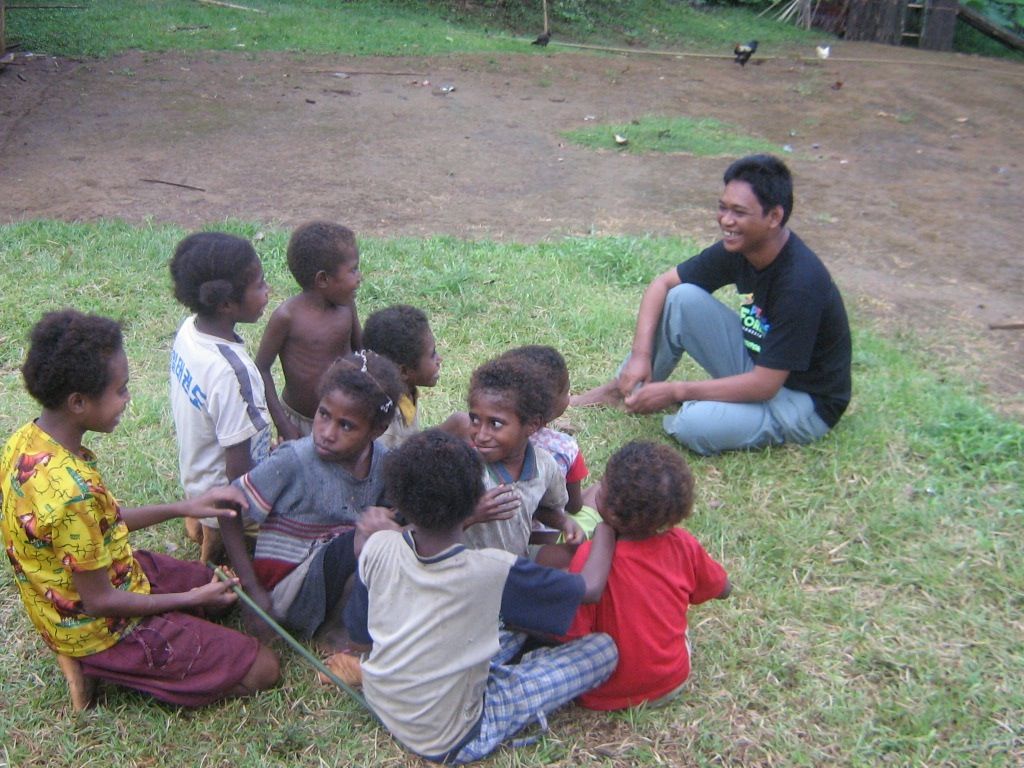
July 27, 1999, marked the beginning of my journey, filled with hope and challenges. At that time, I was completing my studies at the Faculty of Agriculture, Cenderawasih University, Manokwari (now Papua University). Just a year after the 1998 reform movement that shook Indonesia, I joined the student movement that bravely opposed the corrupt government regime. Although far from the center of the movement in Jakarta, our spirit as young people in Manokwari was ignited to uphold democratic values in the remote corners of Indonesia.
That resistance was not without risk; we were pursued by authorities for being considered rebels, and several of my friends “disappeared” and have yet to be found. Our courage as a generation of young fighters full of spirit and hope for a better future became my greatest inspiration in advocating for rights, especially for the indigenous people in Papua who are often marginalized by government policies that do not favor their interests.
After the regime fell, I decided to work at the grassroots level, closer to the indigenous people, to understand and learn from them to design environmental initiatives based on traditional values, honoring ancestral heritage as a cultural identity, and natural wealth that continues to be eroded by modernism and exploitation in the name of development.
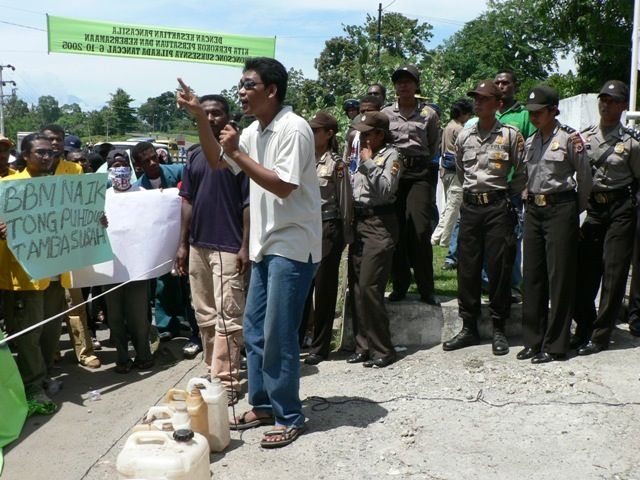
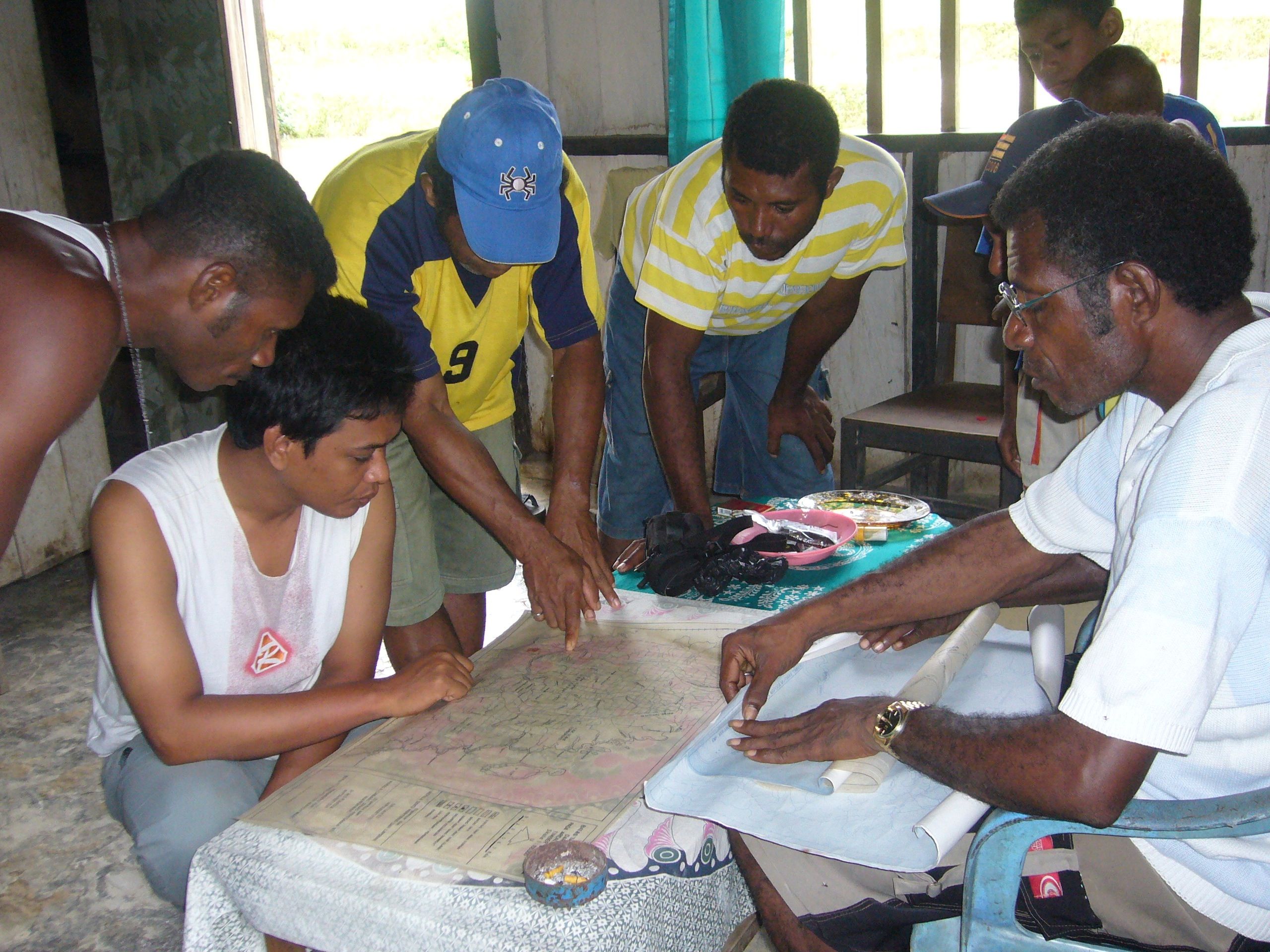
Twenty-five years ago, I began this journey by founding a small NGO, Lembaga Bantuan Pertanian (the Agricultural Assistance Institute), which later transformed into the Perdu Foundation in Manokwari. Starting with the spirit of street fighters, with all limitations, I learned about courage and sincerity to make concrete changes. The struggle began in villages that almost never received attention and assistance, let alone media exposure, with difficult geographical conditions, very limited transportation and infrastructure access, not to mention the rejection of the community for fear of their rights being taken away again. Assistance efforts, advocacy, and follow-up plans were carried out only with the spirit of fighting, minimal funding, and often financed from our own pockets.
After Perdu, my call to fight never waned. As one of the first staff members at Greenpeace Indonesia, I continued the struggle by voicing community rights through hardcore campaigns, real actions, and high-level lobbying on a national and even global scale. My call to build cadres also ran parallel with the establishment of the Bentara organization in Manokwari, to encourage the resurgence of a tough and dedicated young generation in an era that produces a pragmatic and apathetic generation towards policies that do not favor the community
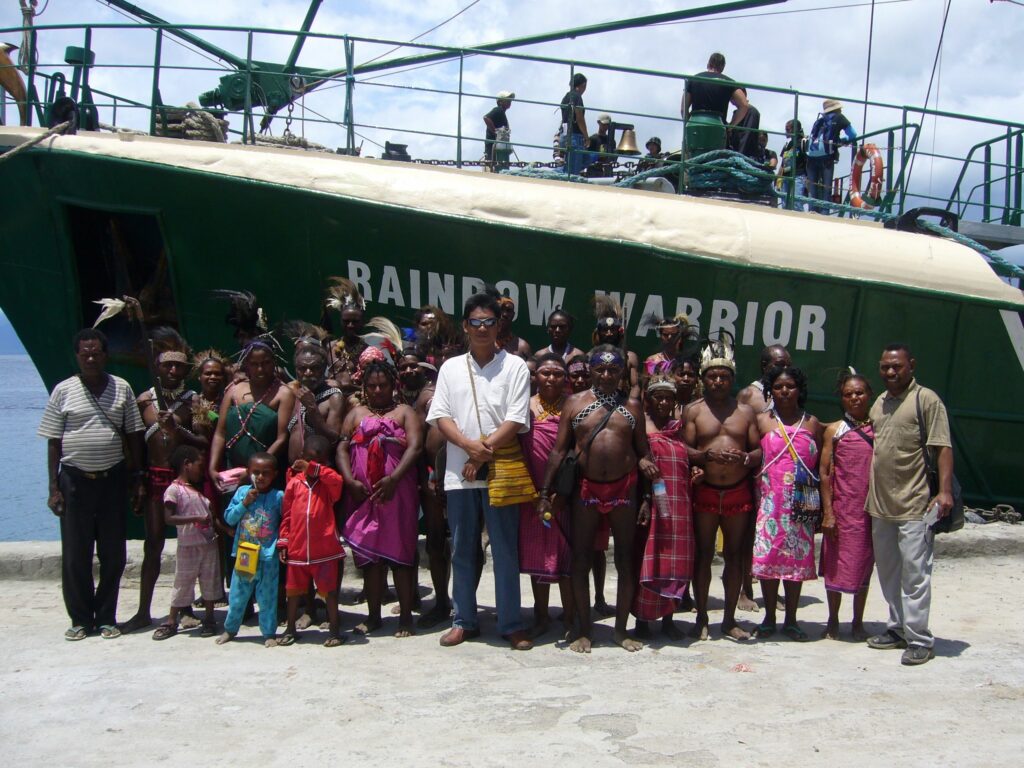
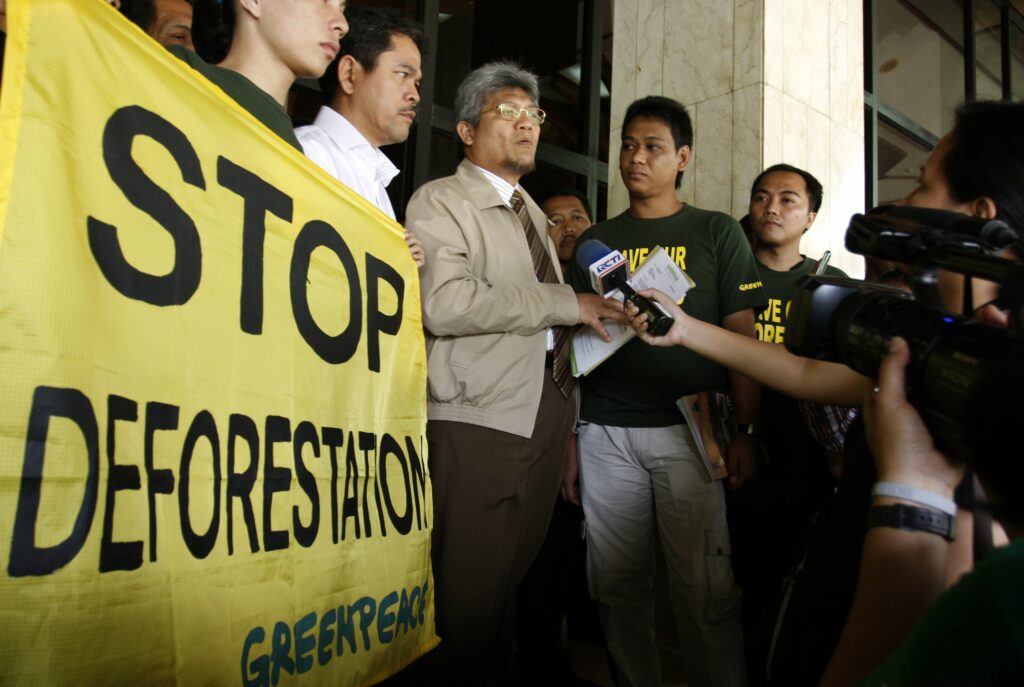
The dream of protecting rights through community empowerment capable of managing natural resources independently and sustainably, I also translated through the establishment of an ecotourism boat service business. My love for Eastern Indonesia’s nature drove me to give more people the opportunity to interact and care for the indigenous people there. In Indonesian, there is a saying, “Tak Kenal Maka Tak Sayang” (If you don’t know, you won’t care).
By getting to know the indigenous people of Papua and Maluku more closely, I hope more people will care and support their rights. The direct involvement of indigenous people in this ecotourism business also reflects their resilience in protecting their lands, viewing economic progress not just from a profit standpoint but from the perspective of preserving nature and local wisdom.
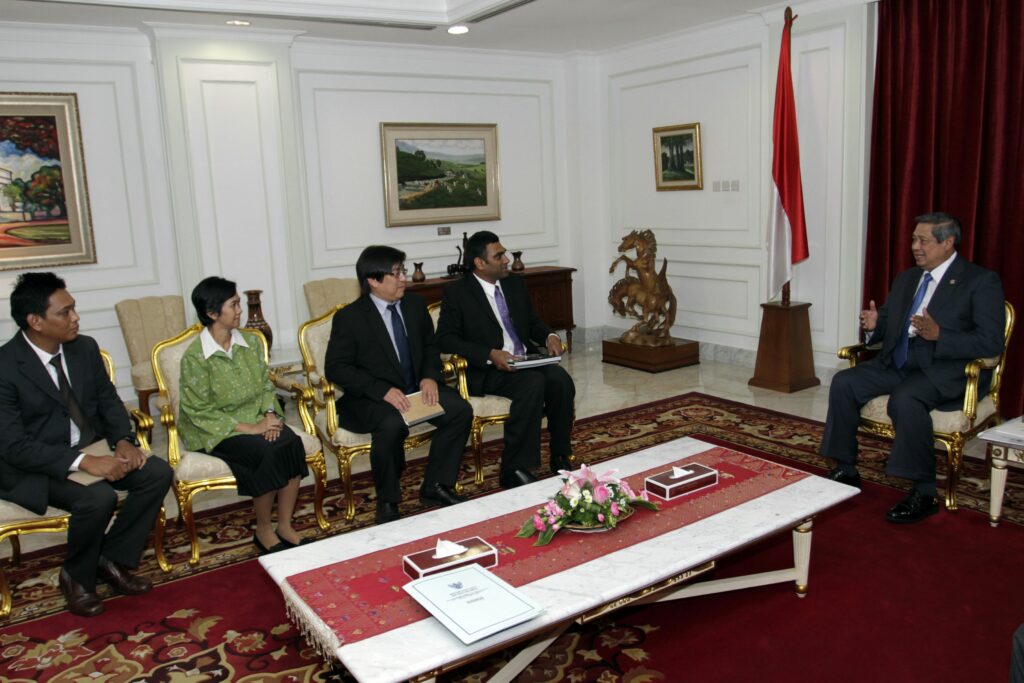
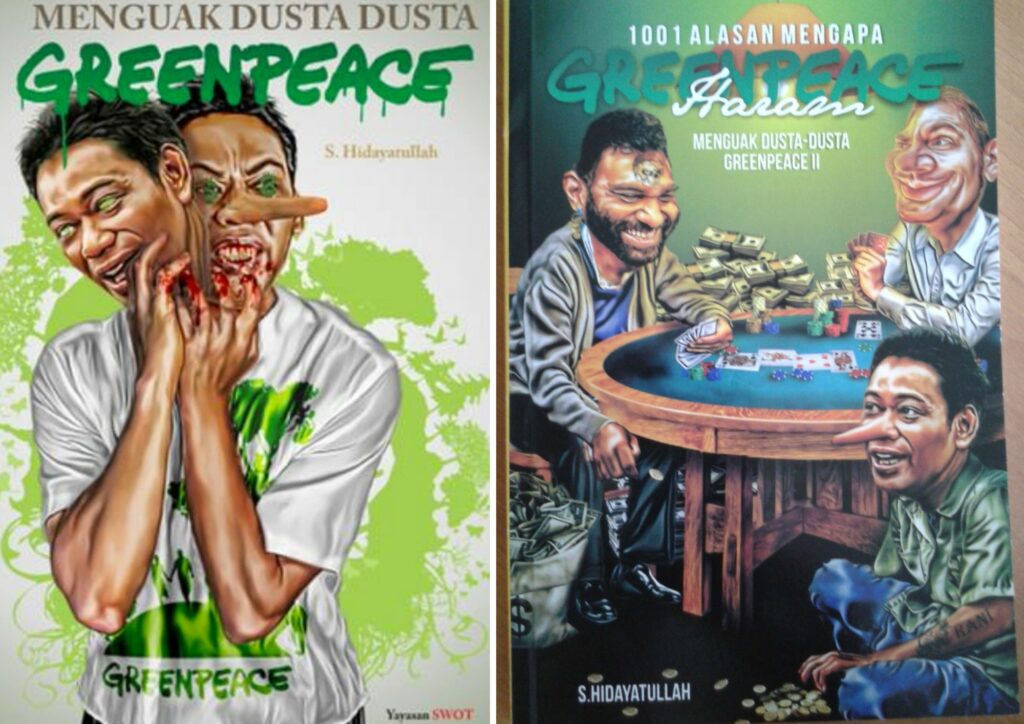
After my journey with Greenpeace, I decided to return to Papua and focus on developing the ecotourism business, leaving my long experience in activism as part of the past. Yet, The Universe never ceased to remind me of my life’s calling. Some close friends happened to visit me in Papua and reignited the spirit that had dimmed, pushing me to return to serving the indigenous people in Papua and Maluku with all their dynamics. This momentum gave birth to EcoNusa Foundation with a different approach but with the same vision I uphold 25 years ago: empowering indigenous communities to have control over their land and natural resources.
In EcoNusa’s five-year journey, we realized that the results of the struggle must be able to provide tangible benefits to the community. That led to the establishment of KOBUMI Indonesia in 2022, supported by 13 community cooperatives running organic and sustainable forest and marine commodity businesses. This business was built as a catalyst, providing financial and market access that has long been restricted for indigenous and local communities. We faced many challenges, with failures and successes coming in turn. However, each step was a valuable lesson. Whenever I felt weary and stagnant, I recalled the advice of an indigenous elder, “Anak, katong jalan sambil bikin jalan, tra bisa tunggu orang lain datang bikin tong pu jalan baru katong ikut” (Son, we walk while making the road, can’t wait for others to come make our road before we follow). My highest highs and lowest lows are an unending learning process, while continuing to do what we believe will bring good.
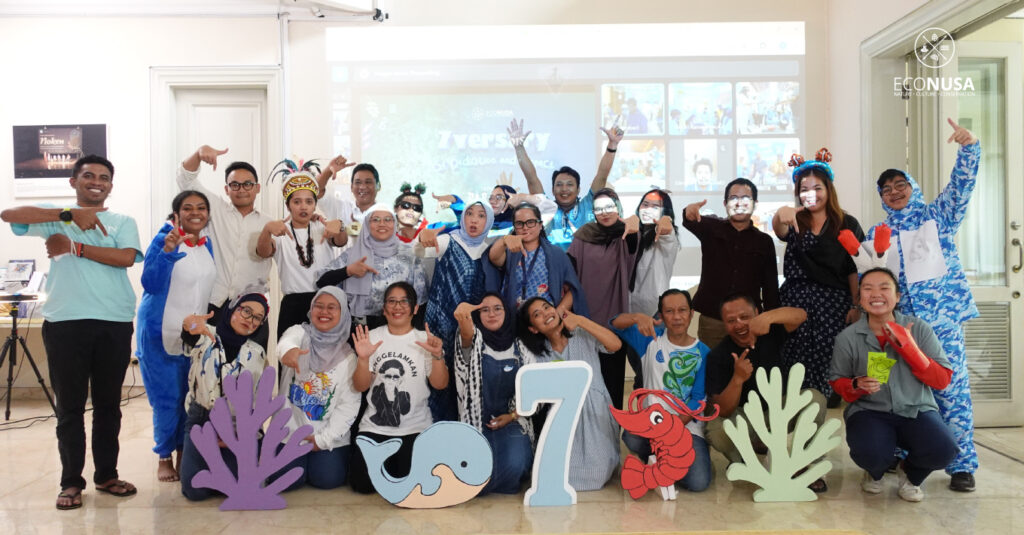
July 21, 2024, also marks the seven-year journey of EcoNusa Foundation. This organization has proven its relevance and strength, with quality recognized nationally and internationally because of initiatives born from the basic needs of the communities we directly encounter in the field. This organization strengthens my “Homecoming” call and contribution as a form of devotion to the homeland that has nurtured and raised me, the Land of Papua.
I am grateful to everyone who has helped maintain consistency and integrity in this struggle, as well as strengthened the positive impact on the environment and surrounding communities. I believe that trust and integrity are the keys to every step of my life. Let’s continue walking together, while paving the way for a better future.
Every step we take is a story, a struggle, and a hope. Thank you for being part of this journey.
Kasumasa, Tabea, Wawawa, Lewobok, Foi
(Greetings in Biak, Ambon, Wamena, Moi, and Sentani languages)


